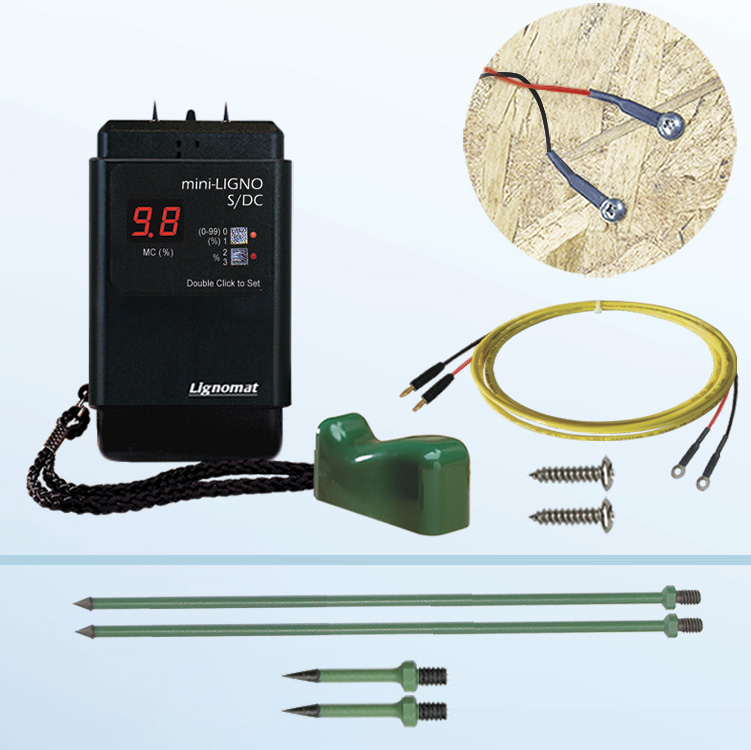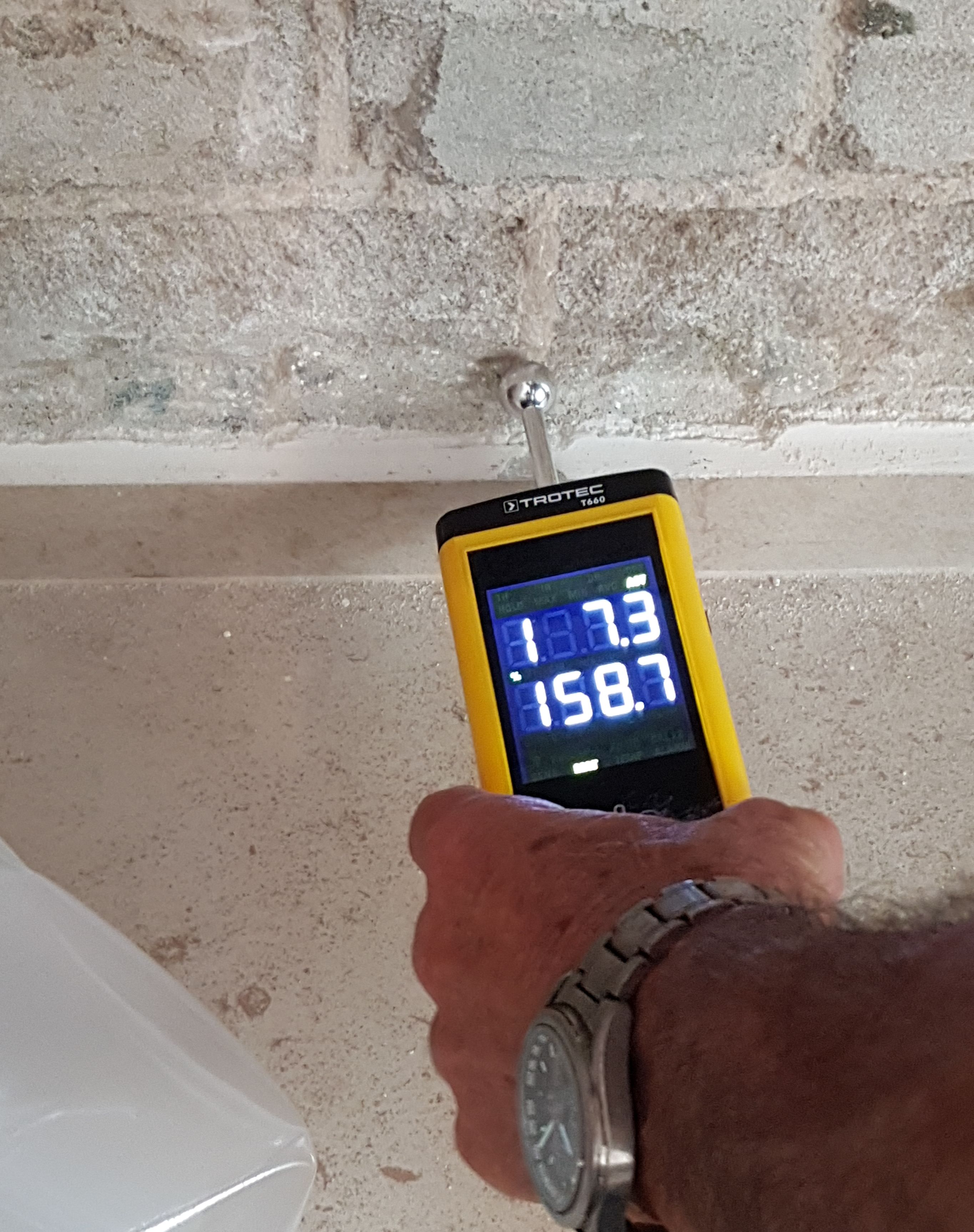Moisture Meter Reviews: Comparing the most effective Models for Specialist and Do It Yourself Use
Wiki Article
The Ultimate Overview to Moisture Meters: A Comprehensive Overview and How They Can Save You Cash
In the world of structure maintenance, building and construction, and numerous markets, the relevance of properly gauging dampness degrees can not be overemphasized. Wetness meters work as important tools in finding and keeping track of moisture content in materials, assisting in stopping expensive damages and guaranteeing the quality of items. Comprehending the nuances of different sorts of dampness meters, their applications, and the possible cost-saving benefits they offer can be a game-changer for experts and services alike. Finding how these tools can not only streamline procedures yet likewise add to financial cost savings is a trip worth embarking on.Kinds Of Moisture Meters
One typical type is the pin-type wetness meter, which measures the electric resistance between two pins put into a product. Pinless wetness meters, on the other hand, usage electro-magnetic sensor plates to scan a larger area without causing damage to the product's surface area.Infrared moisture meters measure the thermal buildings of a material to determine its dampness web content non-invasively, making them valuable for applications where pin or pinless meters might not be ideal. Understanding the various kinds of wetness meters offered can help industries pick the most suitable device for their certain moisture measurement needs.

Advantages of Utilizing Moisture Meters

In addition, making use of dampness meters can lead to increased energy efficiency. In agricultural setups, dampness meters play an essential role in enhancing crop yields by allowing farmers to keep an eye on soil wetness degrees and make educated watering choices.
Just How to Select the Right Moisture Meter
Choosing the ideal dampness meter includes thinking about essential elements such as product compatibility, dimension variety, and calibration precision. When choosing a moisture meter, it's necessary to make certain that the meter is ideal for the certain product you will certainly be testing. Various products have varying electric properties that can impact moisture analyses, so choosing a meter designed for your product is important for accurate results. Additionally, take into consideration the measurement series of the dampness meter. Guarantee that the meter can detect moisture levels within the array required for your applications. Calibration precision is another essential aspect to bear in mind (Moisture Meter). Select a dampness meter with reliable calibration to make sure constant and accurate analyses. Some meters might call for regular calibration adjustments, so recognizing the calibration process is vital. By thoroughly reviewing these elements, you can pick a wetness meter that fulfills your needs and supplies exact moisture measurements for your jobs.Proper Methods for Moisture Meter Use
To make sure exact dampness analyses and make the most of the efficiency of a wetness meter, employing appropriate methods is crucial. When using a pin-type moisture meter, put the pins or probes right into the product being tested till they make full call. By following these correct techniques, individuals can count on their wetness meter to give reliable dampness degrees, aiding in avoiding expensive damage or making certain top quality in different applications.
Price Cost Savings Via Moisture Meter Applications
How can the calculated usage of dampness meters lead to significant expense financial savings throughout various sectors? Moisture meters play an essential role in cost savings by avoiding possible damage and making certain top quality control in different markets. In the farming market, moisture meters like this aid in figuring out the optimum time for collecting crops, avoiding over-drying or excess dampness that can influence the last item's quality. This precise tracking assists farmers prevent unneeded losses and optimize their return.

Furthermore, in the food processing market, moisture meters are vital for keeping an eye on item top quality and making certain conformity with safety read the article laws. By precisely measuring moisture web content in food products, manufacturers can avoid putridity, keep quality, and minimize waste, leading to significant cost savings. On the whole, the critical application of moisture meters is a beneficial investment that can cause considerable expense decreases and boosted effectiveness throughout different industries.
Conclusion
To conclude, moisture meters are important tools for identifying and determining moisture levels in numerous products. By utilizing the ideal moisture meter and complying with appropriate strategies, individuals can properly avoid expensive damages triggered by excess dampness. Buying a high quality dampness meter can result in substantial cost savings in the lengthy run by identifying possible issues early on and making it possible for punctual remediation. Ultimately, dampness meters are important tools for preserving the stability and longevity of products and frameworks.Dampness meters serve as vital tools in spotting and keeping track of moisture content in materials, assisting in protecting against expensive damages and ensuring the top quality of items. Infrared dampness meters gauge the thermal homes of a material to establish its dampness material non-invasively, making them useful for applications where pin or pinless meters may not be suitable.Wetness meters offer indispensable advantages in accurately keeping track of and evaluating wetness levels in varied products and atmospheres. In farming settings, moisture meters Read Full Report play an important role in enhancing plant returns by making it possible for farmers to monitor soil wetness degrees and make notified watering decisions.In verdict, dampness meters are useful devices for finding and gauging dampness levels in numerous products.
Report this wiki page